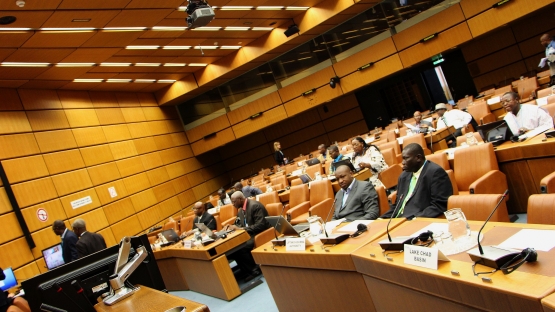In the Sahel, a semi-arid region that runs the width of the African continent, watering holes and other underground sources have sustained nomadic peoples for centuries. Unfortunately, in recent decades, recurrent droughts, overexploitation of water resources, and demographic changes have taken their toll on these limited resources. Through regional cooperation, this impact can be better managed. Together with Member States in the region and regional authorities, the IAEA is engaged in a technical cooperation (TC) project that is working to ensure the sustainability of groundwater sources throughout the Sahel.
The project, entitled "Integrated and Sustainable Management of Shared Aquifer Systems and Basins of the Sahel Region," was inaugurated in July 2012, and has now been operational for nearly two years. The IAEA hosted its first coordination meeting at its headquarters in Vienna, from 5-8 May 2014. The meeting addressed the priorities of the countries sharing the five aquifer systems of the Sahel, and brought together representatives of all thirteen involved Member States, four Joint Authorities and two partner organizations.
During the four-day meeting, we had the opportunity to sit down with representatives of the four regional authorities that are participating in the Sahel project. They are: Mr Diadié Cisse of the Liptako-Gourma Authority; Mr Jacob Tumbulto of the Volta Basin Authority; Mr Mohammed Danasabe Bila of the Lake Chad Basin Commission; and Mr Abdou Géuro of the Niger Basin Authority.


